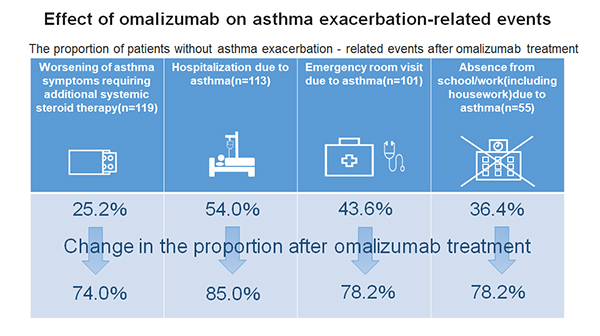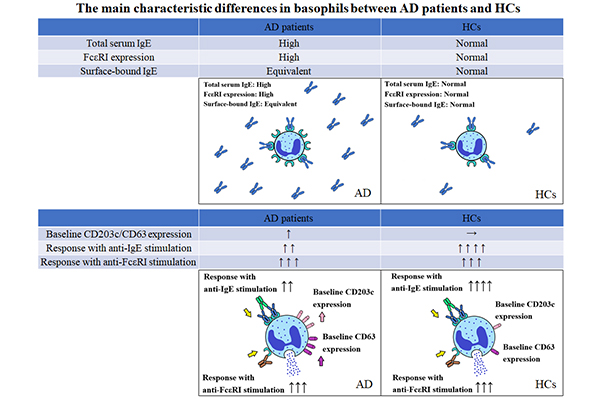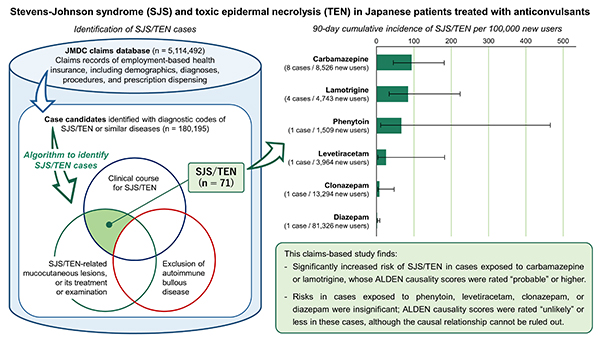Volume 70, Issue 3 (July 2021)
Editor's Choices
Editor’s comment: Omalizumab, an anti-human IgE monoclonal antibody, was approved for severe allergic asthma in Japan in 2009 for adult patients and in 2013 for pediatric patients. Nakamura et al. performed post-marketing surveillance to evaluate the long-term safety and effectiveness of omalizumab in Japanese pediatric patients with severe allergic asthma. Patients (aged ≥6 and <15 years) with severe allergic asthma (n=127) who were introduced to omalizumab for the first time were included and surveyed for 104 weeks. They showed that 77.2% of patients had an effective response to omalizumab. They also showed that no new safety signals were observed in pediatric patients undergoing long-term omalizumab treatment.
Editor’s comment: Basophils, representing about 0.5% to 1% of circulating white blood cells, are thought to be involved in the development of acute and chronic allergic diseases, including anaphylaxis, asthma, and atopic dermatitis (AD). Imamura et al. examined the features of circulating basophils in AD patients. They found that these basophils were spontaneously activated under steady-state conditions, but responsiveness to anti-IgE stimulation was attenuated compared with those in healthy controls (HCs), suggesting unique characteristics of basophils in AD patients.
Editor’s comment: Many medications have been implicated in causing Stevens-Johnson syndrome (SJS)/ toxic epidermal necrolysis (TEN), the majority of which are anticonvulsants, antibiotics, and non-steroidal anti-inflammatory drugs (NSAIDs). It has recently been shown that drug-induced SJS/TEN is often influenced by genetic and/or ethnic differences. In order to examine the risk and incidence of anticonvulsant-induced SJS/TEN in Japan, Fukasawa et al. performed a matched case-control study using a large-scale Japanese health insurance claims database. They found the differential risk of SJS/TEN for anticonvulsants in a real-world setting in Japan.





